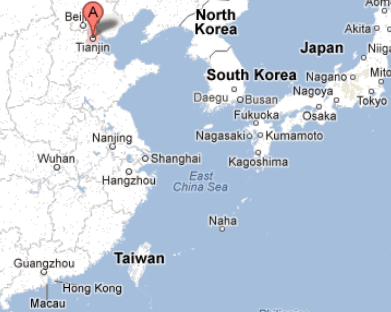|
News & Views item - August 2012 |
![]() What Will It Take for China to Develop 1st-Class Universities?
(August 13, 2012)
What Will It Take for China to Develop 1st-Class Universities?
(August 13, 2012)
Science's Hao Xin writing in the August 10, 2012 issue discusses the
vision of Yang Fujia, "the 76-year-old n uclear
physicist–turned-educator, who was president of Fudan University here [in China]
from 1993 to 1999". In Professor Yang's view: "the biggest problem in Chinese
higher education" is the the teaching of skills at the expense of educating its
students, the question for example being directly addressed currently by
Stanford
University.
uclear
physicist–turned-educator, who was president of Fudan University here [in China]
from 1993 to 1999". In Professor Yang's view: "the biggest problem in Chinese
higher education" is the the teaching of skills at the expense of educating its
students, the question for example being directly addressed currently by
Stanford
University.
To begin to overcome the deficiency, Professor Yang is in the throes of establishing a private liberal arts college in Tianjin, with enrolment to start, he hopes, in a little over a year from now. The intention is to develop an Oxbridge approach where students "will live in residential colleges, attend small classes, and participate in self-organized activities". The project has yet to be OK'd by China's Ministry of Education but it does have the endorsement of Premier Wen Jiabao, a native of Tianjin as well as Tianjin's municipal government which has offered 68 hectares of land for the college.
Jeffrey Lehman, vice chancellor of a campus that New York University is building with East China Normal University, called NYU Shanghai, told Hao Xin that China's leaders are "interested in experimenting with new models of undergraduate education that can help students develop their creative potential". And it is understood that the Ministry of Education is encouraging China's universities to develop specialisations and increase their levels of fundamental research.
However, Hao Xin notes: "the reforms leave intact the Communist Party's involvement in higher education and do not relax restrictions on 'thought education': required courses designed to mold students' political philosophy".
The reforms are part of a program the goal of which is to be attained by 2020, i.e.: "to make Chinese universities more competitive". For example Jiang Biao, head of the preparatory group for the new Shanghai University of Science and Technology, is preparing for a first student enrolment in 2013. The aim is to have it become China's Caltech. And in addition to NYU Shanghai, the University of Michigan in conjunction with Shanghai Jiao Tong University (of ranking fame) is setting up a Joint Institute of Engineering. Hao Xin understands that: "The institute has a powerful fan. State Councilor Liu Yandong, China's highest-ranking science and education official, had a case study of the project disseminated earlier this year to other universities to encourage them to experiment with reforms."
One hurdle that China's tertiary education system has to overcome is the rigidity of the 2-day university entrance gaokao examination which is seen to promote rote learning and stifle creativity. Its reformation is seen as essential and universities should be given greater discretion as weighing its scores in comparison with other evaluators.
And finally there is the matter of the degree of emphasis that is required regarding the teaching of political ideology. But the authorities may find that when 18-22-year olds are exposed to a liberal arts curriculum the teaching of “Introduction to Mao Zedong Thought” and “Deng Xiaoping Theory.” may encounter tough opposition on campus if not within the classroom.